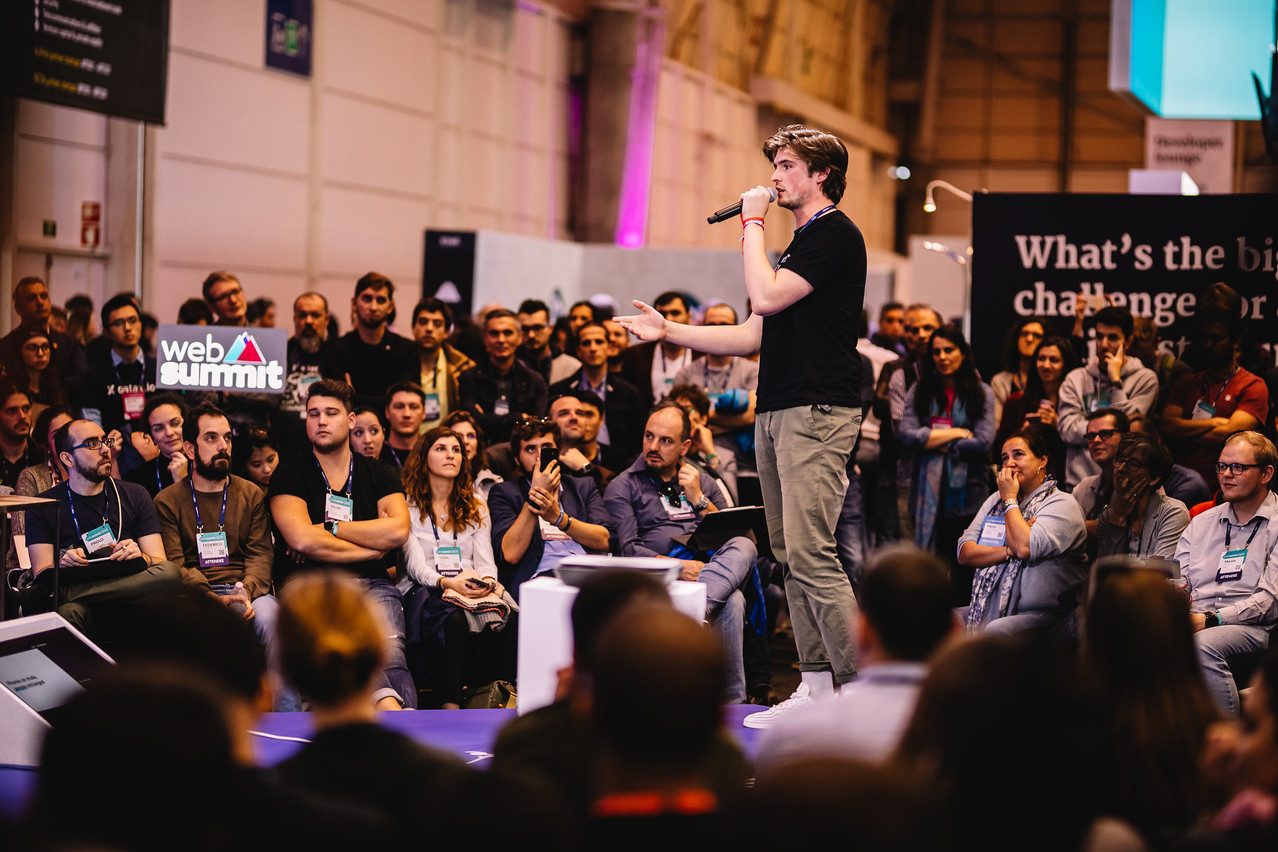The Web Summit can be an overwhelming event, more accurately described as 23 summits within one. These are “tracks” in WS parlance, and their titles range from “Talk Robot” and “SaaS Monster” to “Content Makers” and “HealthConf”.
Here are five things to discover at the world’s biggest techfest.
Entrepreneurs
In fairness, going to the Web Summit without discovering any entrepreneurs would be impossible, but what the event offers is the unique chance to wander through gigantic halls where literally thousands of startups--2,500 attended last year--are waiting to talk to you. Spend an hour just chatting to them and discover anything you want: investment opportunities, new technologies, fresh business models, trending topics… or simply what sort of person quits their job to join a startup.
Luxembourg’s active entrepreneurship scene will be well represented here. Be sure to meet these nine featured attendees:
—A352 (fintech), which is “building the all-in-one solution for financial management of mid-caps and larger SMEs”
—Arca Properties (travel and hospitality), which is “redefining the property management and short-term rental industry”
—digitalUs (fintech), “a people search engine that provides a unified digital footprint by linking online public records to empower compliance officers”
—emma (enterprise software solutions), “multicloud management as a no-code application that helps to deploy and host seamlessly any infrastructure on any cloud”
—Inno bar (enterprise software solutions), which “creates flexible web and mobile solutions for the new remote-working world”
—InvestSet (fintech), which “takes the best asset allocation based on a large set of global investment possibilities”
—Passbolt (security), an “open-source password manager for agile teams”
—Valerian Funds (fintech), which offers “revenue-based financing […] non-dilutive, AI-delivered cash advances for online businesses”
—VoiceMed (medtech and pharma), whose users can “monitor health and wellbeing combining sound with AI using digital health applications”
Pitch competition
The Web Summit’s battle royale of startups selects the top 140 candidates--of a much bigger applicant pool, last year around 700--and pits them against each other in front of expert judges and large audiences. By the end, only one winner is standing.
Gregory Geny of BeRightBack, runner up in 2019, recalls standing on the centre stage during the finals and pitching in front of 15,000 people. “An incredible experience,” he told Delano.
“The gene for ‘giving up’ is missing in me,” said last year’s winner, Wuleta Lemma of Lalibela Global Networks, in an interview on the WS blog--which might give a taste of the attitude required to get this far.
The last three winners have all been medtech companies. Who will be crowned in 2021?
Future societies
This sub-summit (“track”) in particular looks worthwhile, asking questions like “Is every billionaire a policy failure?” and “Is social media destroying society?” In an event that is largely a celebration of the ability to make profits, this series of talks might offer something mildly deeper.
Speakers include Portugal’s prime minister António Costa, American comedian Amy Poehler, Facebook whistleblower Franes Haugen, digital ethics professor Carissa Véliz, European health commissioner Stella Kyriakides and many others.
The next cloud era
What is the “multicloud”? Just another buzzword?
Dmitry Panenkov, CEO and founder of Luxembourg-based startup emma, will be delivering a keynote speech on just this topic.
“Gartner claims that 75% of midsize and large organisations will have adopted the multicloud strategy by the end of 2021,” Panenkov pointed out to Delano, “while TechRepublic has named the complexity of management and administration, absence of native data migration tools, lack of comprehensive security and operations costs as key blockers in multicloud strategy adoption.”
“So,” he went on, “should companies go multicloud or not? This is one of the main questions of the digital transformation.”
Speakers from Synk, Accel, Axios, Amazon and many others will also participate in cloud-related panels and keynotes.
All-hours networking
The Web Summit is something of a networkers’ paradise: tens of thousands of entrepreneurs, investors, journalists, government officials and marketers all in town for the same event… and all of them wearing name tags.
“This is my third Web Summit,” said Panenkov, “and the best thing you get from it is networking. There are a lot of smart people you can get in touch with.”
There is (of course) a WS app to formally assist with contacting other attendees, while the “Night Summit” is an informal gathering in the city of Lisbon after business hours are over.
